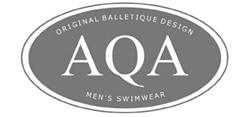Tax changes to come: Are you aware of?
Date posted: 10.12.2014 | Author: Harry BovensmannThe following tax changes are about to be introduced in 2015. They are about to be send to the president for assent. You should be aware of it:
- Retirement reform
The delay of the retirement reform proposals has been well-documented and debated at length. What is less well-known is that while the press statement indicated that the reforms would be put off until March 1, 2017, the legislation has been drafted to suggest postponement to March 1, 2016.
A “positive change” that has not been postponed is the amendment to the definition of retirement date. If the rules of your retirement fund state that you retire at the age of 55, you also retire for tax purposes at this age in terms of the current legislation, even if you carry on working for the employer. This means that retirement funds are required to withhold tax from the pension lump sum at this age.
This will change in future. As long as the rules of the retirement fund allow you to retire at a later date than the minimum age stipulated, you would be able to continue to contribute to the fund and to preserve your retirement benefits by working past the normal retirement age. The lump sum would only be taxed when you elect to retire. But his would only be the case if the rules of the retirement fund allow for retirement at a later date.
This change comes into effect on March 1, 2015.
- Employer provided rental accommodation
Another proposed change is the calculation of the fringe benefit where an employer provides an employee with accommodation. The fringe benefit amount is either the actual cost to the employer of providing the accommodation or a figure calculated in terms of a formula that is based on the employee’s remuneration – whichever is the higher amount.
The current difficulty, especially in circumstances where the accommodation is rented from a third party, is that the formula often provides a result that is more than the actual cost to the employer. In such circumstances the employer can apply for a directive from the South African Revenue Service (Sars) to have the formula amount lowered to a reasonable amount, but this has created an administrative bottleneck.
The amendment suggests that where the accommodation is rented from an independent third party, the fringe benefit will be calculated using the lower of the formula or the cost to the employer.
The change will be effective for years of assessment commencing on or after March 1, 2015.
- Company car fringe benefit
The present company car fringe benefit system is perceived to be unfair. Currently, the calculation of the fringe benefit is usually dependent on the cost of the vehicle to the employer or the market value of the vehicle when the employer first acquires the use of the vehicle. But car manufacturers or other employers in the motor trade often obtain the vehicle at a discounted price relative to what other employers would pay for the same vehicle and therefore base their calculation on a lower amount.
This could place employees who work outside the automotive industry at a disadvantage. That is going to change and the idea is that the retail market value will be used in all cases. In future, the retail market value would be published by way of Regulation. The idea is to use the manufacturer’s suggested retail price (list price) in the case of new vehicles and to look to the insurance industry where second hand vehicles are involved.
The change will apply to vehicles that are acquired or manufactured on or after March 1, 2015.







